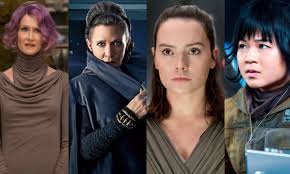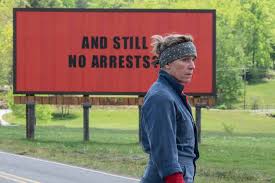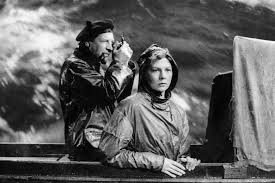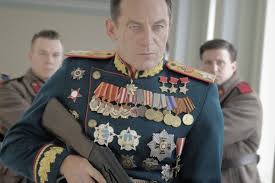These are my picks for films of 2018. As usual, I’m resisting the urge to rank these, because they’re so diverse, but there is a top 3 which I will reveal shortly.
2018 had two huge additions to the Marvel cinematic universe. Black Panther has a significance that goes way beyond its contribution to the Avengers’ narrative arc. It gives us, all of us, a cast that is overwhelmingly made up of people of colour. Good guys and bad guys and somewhere in between. And not just guys – a whole lot of magnificent, clever women too. The film had, as one might have expected, a huge impact on black audiences. It’s not that they hadn’t ever seen people who look like them on screen, or even in superhero movies, but up front and centre? All over the damn screen? But it had an impact on all of us, I think. It didn’t make a big deal of what it was doing, it just got on with it, as this review in The Daily Telegraph, of all places, points out:
The film walks into the multiplex like it’s insane that it hasn’t been allowed in there all along. And it is. For one thing, an entire subset of younger cinema-goers are only just about to experience the dizzy uplift of watching a title character in a superhero movie who looks like them under the costume. … Black Panther seems to overcome the genre’s long-standing neuroses around creating rounded, exciting roles for women by just getting on with it.

It worked on every level – there was much fighting, and things exploded, and there was moral ambiguity, and there was witty dialogue. And it was visually stunning – our first view of Wakanda was breathtaking.

And then there’s Avengers: Infinity War. Now normally I walk out of the cinema after a Marvel movie with a big daft smile on my face. Not this time. I was braced for deaths – I thought I knew what was coming and did a bit of advance grieving for my most-loved Avenger (Captain, oh, my Captain). What we got was much more confusing than that. We lost so many, but not the ones we expected to lose – in fact, many of those who we saw turn to dust were the ones we know absolutely can’t be gone. It’s fine that in fantasy death is not always the end – why bother creating a fantasy world if it has to obey all of the same rules as the real one? – but the risk is always that death loses its sting if we too often can just nod sagely to each other and say, ‘they’ll be back’. So, which of these deaths are going to stick, and which will be reversed? We have to wait until April 2019 to find out.
The Last Jedi features
a scene … that’s both revolutionary and dead simple: a circle of women, soldiers and warriors all, … handily discussing how they’re going to tackle their latest military offensive. While Star Wars has always featured strong women … Johnson’s film integrates them into all aspects of the story.

As I’ve said previously, Star Wars isn’t my thing, although I’ve very much enjoyed The Force Awakens, Rogue One and this one. But I don’t feel quite the exhilaration that the true fans feel at the resurgence of the series, nor can I understand the sense of betrayal from fans who believe that the recent films get it wrong.

Annihilation was released on Netflix so we saw it on the small screen. It’s a shame – it’s visually stunning and would have really benefited from being shown in the full cinema setting. However, it’s a superb sci-fi film, which has the courage to leave plenty of ambiguity, right to the end. And, refreshingly, the crack team that’s sent in to try to investigate the mysterious ‘Shimmer’ is made up of women – scientists and a paramedic. That’s one of the areas of ambiguity – were they chosen solely because of their specialist expertise, regardless of gender, or is their gender a factor in their selection, that the failure of successive teams of military men to emerge from the Zone is actually to do with gender?

A Quiet Place was one of the tensest ninety minutes I can recall (and I endured Forest’s last ditch Championship survival on goal difference a couple of seasons ago). It was initially a hard sell – you watch this film, you have to sign up to the discipline of no coughing, no rustling of crisp packets or sweet wrappers, no sotto voce asides to your neighbour. Silence is survival in this world, and we rapidly become part of it, as we see how this family has adapted every detail of their life to enable them to function in silence. It’s made very clear early on that the peril is real, and it gets realler. We watched this on the small screen but there was never any question of hitting pause to fetch a cuppa or go to the toilet. We sat so very still that my Fitbit thought I’d had a 90 minute sleep…
First Man was 60s science fiction become reality, portraying the build-up to the 1969 moon landing, focusing on Neil Armstrong, the first man to set foot on another world. Armstrong (as portrayed here by Ryan Gosling) was in many ways a hard man to root for, his emotional distance shown vividly in the final scene, where after his return to earth and still in quarantine, his reunion with his wife is through the barrier of a pane of glass.
A rather odd (and atypical) review in The New Yorker complained that:
there’s no sense of what Neil’s perspective might be on the Twist, the Beatles, or anything else going on in the turbulent sixties.
I can’t say I was particularly troubled by that – it is actually refreshing to reflect that probably most people in the sixties were not caught up in that cultural maelstrom. The reviewer goes on to claim that:
Chazelle openly mocks people who thought that the moon money was spent foolishly—those pesky intellectuals, blacks, and Hispanics who go on TV or into the street demanding “gimme” while the likes of Neil and his exclusively white, male colleagues uncomplainingly put their lives on the line to accomplish historic things in the interest of “mankind.”

This seems to me an extraordinary claim. Nothing in the movie suggested to me either that Armstrong’s emotional closedness was being lauded (indeed, the damage to himself and to his family was very clearly shown), or that Chazelle was pushing some kind of MAGA patriotic agenda. A much more perceptive – but not uncritical – review appeared in The Culture Vulture .
One of the most striking things about the film was the sensation of the physical reality both of the machines that transported these men into space, and of the claustrophobia of being strapped into those machines – the sheer noise, the jolting and juddering, the shots of sheets of metal held together by nuts and bolts. We’re used to space craft as bright white shiny machines, not as something that might have been built in someone’s garage. I watched that first landing on TV, having been allowed a special dispensation to stay up after normal bedtime. Back then it might as well have been sci-fi – in First Man it’s science, it’s engineering, it’s mechanics and it’s fragile human bodies making it all work.
Three Billboards featured the redoubtable Frances McDormand, who was as magnificent as one might have expected. McDormand’s Mildred wasn’t readily likeable, even when she was being admirable, and she got it horribly wrong in many ways, but she was a powerful presence.

The heart of the film was Woody Harrelson’s police chief, trying to find the best in everyone. And the moment that touched me most was when as they confront each other he is racked by a cough that spatters blood over both of them, and she says, ‘oh, baby’, as she realises how very ill he is. It’s often a brutal film, and often brutally funny.
Cold War is a musical history of postwar Europe, shot in luminous black and white, a story of doomed lovers who find and lose and find and lose and find each other, always searching, never settling. The film’s last line is “Let’s go to the other side. The view is better from there”.

The lovers’ story is told through music, from the raw rural folk that Wiktor and Irena are attempting to record, to the ‘Stalinisation’ of that tradition, the Parisian jazz and chanson that they immerse themselves in after their defection and back to the bastardised pop of Zula’s final performance. The chill referred to in the title is political and personal. Irena stands up during the first full-on Stalinised performance and walks out, never to be seen, or spoken of again. Zula admits in passing to having informed on Wiktor. Those were the realities, but they’re not underlined or over-explained. It’s beautiful and devastating.
My final pick for 2018 is Lady Bird. Saoirse Ronan is wonderful, as is Laurie Metcalf (always one of the best things about Roseanne). As a former teenage girl, and more recently as the mother of a teenage girl, I identified with both the eponymous Lady Bird (aka Christine) and with her mother Marion. This was real, and touching, and often very funny. There were scenes that I could swear were ripped from my own life:

Do you really need to use two towels?
Ah… No, I guess no.
If you need two towels you just have to say so because this affects my whole day. Because I have to do laundry before work, and I need to know if there are more towels that I need to wash.
Family life, summed up in one short exchange. And then there’s the sequence where mother and daughter attempt to choose a prom dress. I laughed and winced.
OK, so I kind of committed myself to a top 3. Black Panther, A Quiet Place, Three Billboards. Such very different films, which is why I’m not willing to rank them within that top 3. I hope the comments above explain why I’ve chosen them.
Honourable mentions to: Death of Stalin (Jason Isaacs!), the Showroom’s Bergman season of which I managed to see only Persona and Smiles of a Summer Night, and their Varda season of which I saw only Jacquot de Nantes. Both seasons whetted my appetite for more from those directors. I particularly loved the humour and warmth of Agnes Varda’s love letter to her husband, Jacques Demy. Also the first part of the new adaptation of Stephen King’s It, which was infinitely better than the previous version, and the second part of which I await eagerly.
It’s also important to recognise the old movies that I enjoyed this year. A bit of a Powell & Pressburger retrospective with Blimp, A Matter of Life & Death, and I Know Where I’m Going. Lord, those guys were brilliant. And a couple of Billy Wilders – the familiar (Some Like it Hot) and the new to me The Apartment (I’d seen the Bacharach musical based on the story but not the movie). Rewatched West Side Story as a birthday treat, and had my annual sobfest watching It’s a Wonderful Life just before Xmas.
Small screen will have to be a separate blog. Given current family pressures, it may be more of a list than a blog, but hey-ho, that’s how it goes. I also hope to look at how the Bechdel test stands up in terms of contemporary films, where it still has validity and importance and where it falls down.
Thanks to those who’ve shared these cinematic pleasures with me (Arthur, Viv, Martyn, Liz).






